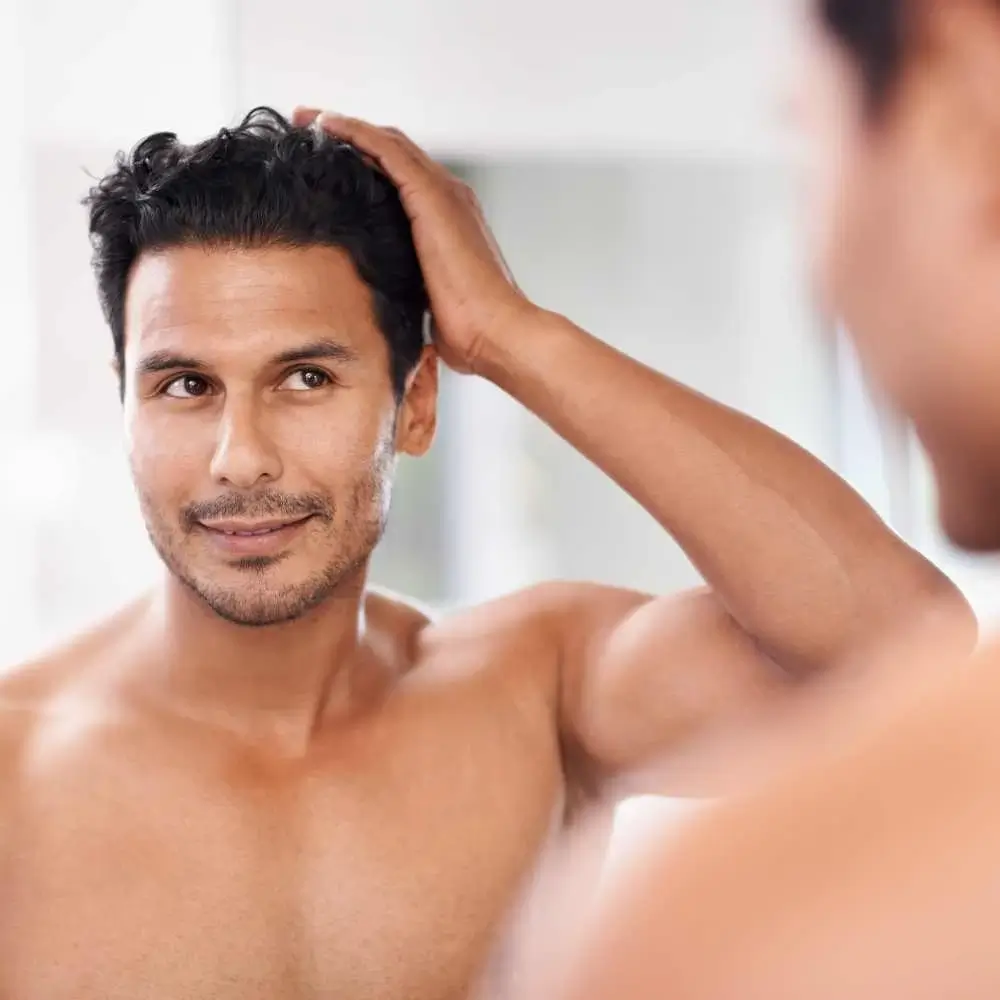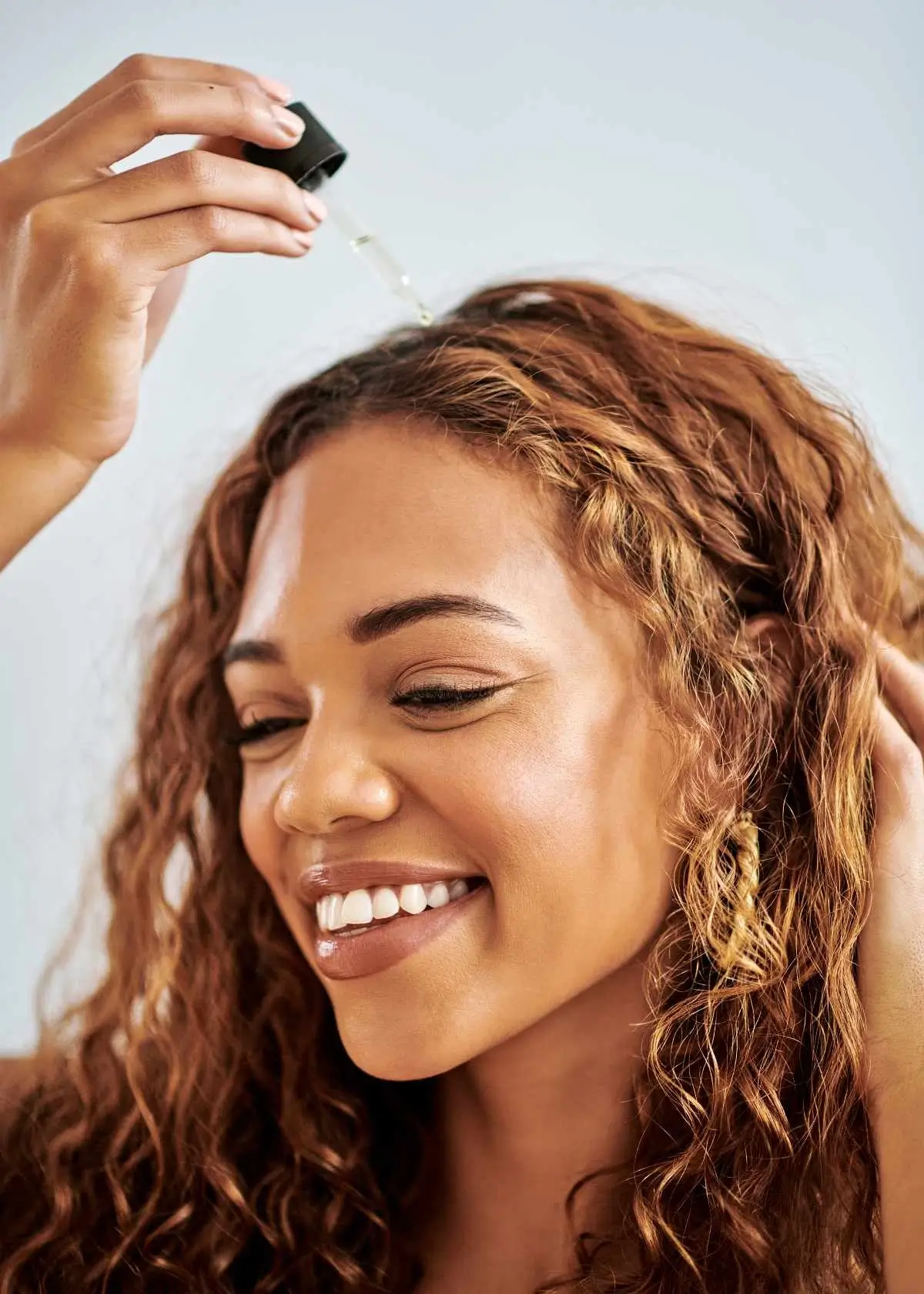Introduction
Hey there, lovely people with scalps of all types and textures! We're here today to get down to the root of a topic that's been causing a buzz in the beauty world. Yes, we're talking about scalp oils, those little liquid wonders that promise to transform your hair from lackluster to luscious.
Now, you might be scratching your head (and hopefully not because of a dry scalp), wondering, "Why on earth should I oil my scalp?" Well, just like a plant needs nourishing soil to grow, your hair needs a healthy, well-moisturized scalp to flourish. Scalp oils can help balance oil production, soothe itchiness, reduce dandruff, and even stimulate hair growth. Pretty impressive, huh?
We know the struggle of searching for the best scalp oil—cruising down the infinite internet aisles, getting lost in a sea of brands, each promising miracles. It's like trying to find the perfect avocado in a supermarket—confusing, a bit overwhelming, and strangely personal.
That's where we come in. Consider this guide your trusty GPS in the world of scalp oils. We're here to help you navigate through the jargon, understand what to look for, and ultimately find the best oil for your scalp. So, buckle up, folks—it's time to oil up and shine on!

Understanding Your Scalp: A Quick Primer
Before we dive into the oily (in a good way) details, let's take a moment to chat about our scalps. Because, let's face it, not all scalps are created equal. Just like our skin types, our scalps can be dry, oily, or perfectly balanced (the Goldilocks of scalps, if you will).
Dry Scalp: If your scalp often feels tight, itchy, or flaky, congratulations, you're the proud owner of a dry scalp. It's like living in a perpetual winter, where dandruff flakes could easily be mistaken for snow. So, when shopping for scalp oils, you need something that's ultra-hydrating and moisturizing. Think of it as a thirst-quenching oasis in your personal hair desert.
Oily Scalp: Now, if you find your hair looking like an oil slick just a day after washing, you have an oily scalp. It's like your scalp is throwing an oil party and everyone's invited. In this case, you'll want to look for lightweight oils that balance sebum production without adding extra grease to the mix. It's all about oil control – like a polite bouncer at that rowdy oil party.
Balanced Scalp: And finally, if you're neither too dry nor too oily, you're in the balanced club. But don't get too comfy! Even balanced scalps need care to maintain that equilibrium. Look for nourishing oils that are lightweight and hydrating to keep your scalp in its happy place.
Knowing your scalp type is like having a secret decoder ring for the world of scalp oils. It gives you the superpower to sift through the options and zero in on what will work best for you. So, embrace your scalp type, whether it's as dry as the Sahara, as oily as a slice of pizza, or balanced like a zen master. It's the first step towards healthier, happier hair!

The Science Behind Scalp Oils
Alright, folks, it's time to put on our lab coats and nerdy glasses, because we're about to dive into the cool, slick world of scalp oil science. Don't worry, there won't be a pop quiz at the end.
So, how do scalp oils work, you ask? Well, imagine your scalp as a garden. The oil is like a super-fertilizer, delivering nourishment right to your hair roots. It moisturizes and conditions the scalp, creating a healthy environment for your hair to grow. Not only that, but it also forms a protective barrier around your hair strands, locking in moisture and shielding them from damage. It's like giving each strand its very own bodyguard.
Now let's talk about the science-backed benefits of using oil for your scalp. One study published in the Journal of Cosmetic Science showed that coconut oil, when applied to the hair, reduces protein loss and strengthens the hair shaft. Another study in the Archives of Dermatological Research found that peppermint oil promotes hair growth without any toxic effects. And let's not forget about the antimicrobial and anti-inflammatory properties of many essential oils, like tea tree oil, which can help soothe and treat scalp conditions.
Of course, it's not all about growth and strength. Scalp oils can also help with things like dandruff, itchiness, and balancing sebum production. Think of them as the Swiss Army knife of hair care. They may not help you open a wine bottle or unscrew a tiny screw, but they've got pretty much everything else covered.
So there you have it, a brief foray into the slick, shiny world of scalp oil science. It's not just about having a fancy bottle on your bathroom shelf (though that doesn't hurt), it's about understanding how these oils work their magic and why they deserve a spot in your hair care routine. Now, who's ready for some oil shopping?

What to Look For When Choosing the Best Oil for Your Scalp
When it comes to shopping for the best oil for your scalp, it's a bit like dating. You're looking for something attractive, genuine, and trustworthy. And just like you wouldn't bring home any old suitor to meet your parents, you shouldn't slather any old oil onto your precious scalp. Here's what you should keep an eye out for:
Quality of Ingredients
First and foremost, check out that ingredient list. We're talking about the stuff that's going directly on your scalp, so it's important to ensure it's of high quality. Look for natural, organic ingredients, because your scalp deserves nothing but the best.
Beware of harmful chemicals such as sulfates, parabens, and phthalates, the bad boys of the beauty world. They're known to cause irritation and other health issues. Also, steer clear of synthetic fragrances. Yes, they might smell like a dreamy tropical paradise, but they can be a nightmare for your scalp. Instead, opt for oils with natural fragrances—your scalp will thank you.
Brand Reputation
Next up, brand reputation. Just like you wouldn't buy a car from a sketchy dealership, you shouldn't buy scalp oil from a brand that doesn't have a solid reputation. Look for brands that are respected in the industry and have a history of producing high-quality products.
Also, look at the brand's commitment to ethical and sustainable practices. After all, it's 2023, and we're all about saving our planet, one scalp oil bottle at a time.

User Reviews and Recommendations
Lastly, don't underestimate the power of user reviews and recommendations. They're like having a bunch of friends who've already tested the product for you. Look at the overall ratings, but also dive into the comments. Are there common complaints? Do people rave about the same benefits?
Also, pay attention to recommendations from reputable sources. If a trusted beauty blogger or a professional hairstylist swears by a certain oil, it's definitely worth considering.
Remember, choosing the best oil for your scalp is a personal journey. What works for one person might not work for another. But with these tips, you'll be well-equipped to make an informed decision. Happy oil hunting, friends!
Our List of the Top Products in this Category
1. Mielle Organics Rosemary Mint Scalp & Hair Strengthening Oil
2. Revivogen MD Scalp Therapy
3. Head and Shoulders Scalp Elixir Treatment

How to Properly Use Scalp Oil for Best Results
So, you've found your dream scalp oil, and you're ready to dive headfirst into this new hair care routine. Fantastic! But hold up—before you start pouring that liquid gold onto your scalp, let's talk about the best way to use it. Here's a step-by-step guide to help you get the most out of your scalp oil:
- Start with a clean slate: It's best to apply scalp oil after you've washed your hair. A clean scalp allows the oil to penetrate better, like a freshly plowed field ready for seeding.
- Section your hair: Divide your hair into sections. This isn't just for fun (though who doesn't love a good hair partitioning session?), it's to ensure the oil is evenly distributed.
- Apply the oil: Now, pour a small amount of oil onto your fingertips or, if it comes with one, use a dropper. Then, massage it into your scalp, working from the front of your head to the back. This isn't a race—take your time and enjoy this mini scalp massage. Your hair follicles will thank you!
- Let it sit: Leave the oil in for at least 15-20 minutes. Want to amp up the benefits? Leave it on overnight (just make sure to cover your pillow with a towel unless you want an oily surprise in the morning).
- Rinse it out: Finally, wash out the oil with a gentle shampoo. If your hair still feels a bit greasy, you can wash it twice.
- Repeat regularly: For the best results, use scalp oil once or twice a week. It's like going to the gym—you've got to be consistent to see results.
And there you have it! Your comprehensive guide to using scalp oil. Remember, it's not just about the oil you use, but how you use it. So follow these steps, and you'll be on your way to a healthier, happier scalp. Now, go forth and oil!
Frequently Asked Questions about Scalp Oils
When it comes to scalp oils, we know you've got questions. And lucky for you, we've got answers. We've compiled some of the most common queries about scalp oils and answered them in a way that's as clear and non-greasy as a well-oiled scalp. Let's get started!
Q: Can I use scalp oil if I have oily hair?
A: Yes, absolutely! It might seem counterintuitive to add more oil to an already oily situation, but using the right kind of oil can actually help balance your scalp's sebum production. Look for lightweight oils like jojoba or grapeseed, which can provide the hydration your scalp needs without adding extra oiliness.
Q: Will scalp oil make my hair look greasy?
A: Not if you use it correctly. The trick is to use just enough oil (find the best drugstore hair oil here!) to cover your scalp lightly, and to wash it out thoroughly afterward. Remember, a little goes a long way!
Q: How often should I use scalp oil?
A: It varies depending on your hair type and specific needs, but a good rule of thumb is to use scalp oil once or twice a week. If you have a particularly dry or irritated scalp, you might want to use it more often.
Q: Can scalp oil help with hair growth?
A: Yes, it can! Many scalp oils contain ingredients that stimulate blood circulation in the scalp, which can promote healthier, faster hair growth. Plus, by improving the overall health of your scalp, you're creating the ideal environment for your hair to grow.
Q: Are there any side effects of using scalp oil?
A: As long as you're using a high-quality oil and you're not allergic to any of its ingredients, there should be no adverse side effects. However, if you notice any irritation or worsening of your scalp condition, stop using the oil and consult a dermatologist.
Q: Can I use cooking oil as scalp oil?
A: While it's true that some cooking oils, like coconut or olive oil, have beneficial properties for hair, they're not formulated specifically for scalp health. Stick to oils specifically designed for hair use for the best results.
There you have it—scalp oil FAQs, debunked and demystified! Just remember, when it comes to scalp oil, the goal is healthier, happier hair. So keep these answers in mind, and you'll be well on your way to becoming a scalp oil savant. Happy oiling!

Conclusion
And there you have it, folks—the complete guide to choosing and using the best oil for your scalp. We've covered everything from understanding your scalp type to the science behind scalp oils, and how to use them for the best results. We even answered some of your most burning questions!
Remember, the key to finding the perfect scalp oil is understanding your own scalp's needs, choosing a high-quality product from a reputable brand, and using it properly and consistently. It's not rocket science, but it is a bit of hair science, and we hope we've made it as clear as a freshly washed and oiled scalp.
We encourage you to use this guide as your secret weapon in the quest for healthier, happier hair. And remember, this is a journey, not a race. So take your time, explore your options, and make the choice that's right for you.
Found this guide helpful? We'd love it if you'd share it with a friend, bookmark it for future reference, or leave a comment below. And if you have any other questions, don't hesitate to ask. After all, we're all in this hair care journey together.
In the immortal words of hair care enthusiasts everywhere: Oil's well that ends well. Here's to your scalp health!






